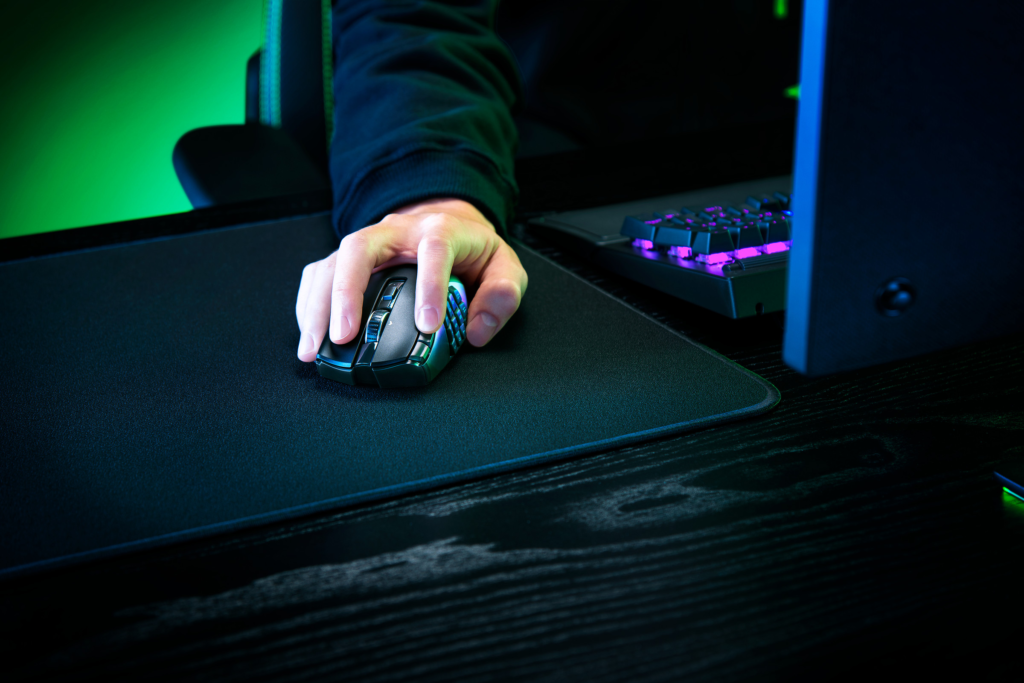Today, Razer announced follow-ups to its MMO-centric modular gaming mouse with the Razer Naga V2 Hyperspeed and V2 Pro. Both models share a similar design to Razer’s older models of the Naga lineup but include some interesting changes to the hardware.
Designed as the more budget-friendly option, the $99.99 Razer Naga V2 Hyperspeed still features the 12 macro buttons placed under your right thumb but also has a pair of additional buttons placed in the upper-left periphery of the mouse, directly to the left of your index finger, similar to what we saw with the Razer DeathAdder V2 X. However, unlike the Naga X, the V2 doesn’t have a swappable button panel.
The more expensive Razer Naga V2 Pro, priced at $179.99, brings back Naga’s trademark swappable side panel, which allows you to swap between two, six, or 12 macro buttons, giving it more flexibility depending on the type of game you’re playing. Twelve buttons might be excessive when you’re playing Apex Legends, but having that option for casually grinding through an MMO like Final Fantasy XIV or World of Warcraft is pretty cool. While the V2 Pro does get the option for choosing how many buttons it has, it lacks the additional pair of buttons included on the V2 Hyperspeed, which seems like a strange omission.
The V2 Pro is also equipped with a version of Razer’s HyperScroll wheel that we first saw with the Razer Basilisk V2, which allows you to quickly scroll by gently flicking the scroll wheel in either direction. However, the scroll wheel on the Naga V2 Pro will have the ability to fine-tune the tension and speed of the scroll through Razer’s Synapse software.
Both models have Bluetooth and 2.4Ghz wireless connectivity, but Razer has opted for a AA-battery-powered design instead of a rechargeable internal battery with the V2 Hyperspeed, much like the DeathAdder V2 X. The V2 Pro, on the other hand, is rechargeable via USB-C and is also compatible with Razer’s new wireless charging system introduced with the Razer Basilisk V3 Pro. The V2 Hyperspeed and V2 Pro also use the same 30K DPI Focus Pro optical sensor and have a 1000Hz polling rate.

